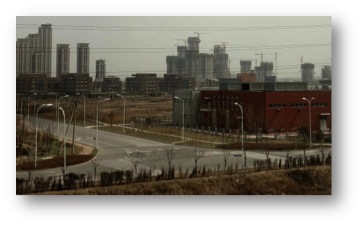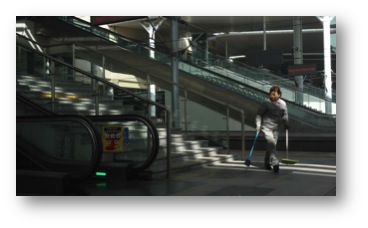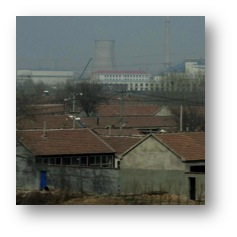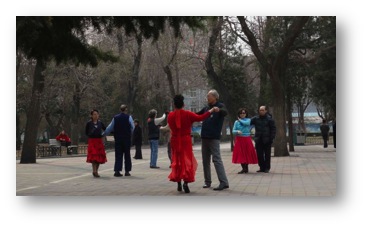By ROLF YNGVE
 We took the fast train to Beijing across hours of deadened countryside where all the trees grow in rows, various heights, but all new and emaciated under the dusting of early leaves. I asked an acquaintance what happened to all the old trees. Was this a result of the Cultural Revolution? He said, maybe they ate them. They ate grass sometimes. Maybe they cut them down for firewood. Now and then you see some that don’t look planted; volunteers, they had been fattened up by age and randomly placed. There are always survivors.
We took the fast train to Beijing across hours of deadened countryside where all the trees grow in rows, various heights, but all new and emaciated under the dusting of early leaves. I asked an acquaintance what happened to all the old trees. Was this a result of the Cultural Revolution? He said, maybe they ate them. They ate grass sometimes. Maybe they cut them down for firewood. Now and then you see some that don’t look planted; volunteers, they had been fattened up by age and randomly placed. There are always survivors.
The train whistled us over nearly a thousand miles in less than six hours, a smooth, silent ribbon pulled gracefully through the hard fingers of this landscape. It was comfortable, well ventilated, warm, and the seats gracefully proportioned. Between Shanghai and Beijing, we stopped at four stations. This was the cleanly constructed new China. Big expanses of glistening escalators and parking complexes void of even a single passenger or vehicles.

We crossed highways, wide, six and eight lanes. Empty. All of it neatly tended. Groves of narrow apartment complexes seemed set down for no reason, empty concrete under construction. Then I saw the low factories hulking nearby, also empty—the stations, the factories and the housing, all built together in anticipation of some activity to come. Waiting for something, some future crowd, some even larger economy.

Between all the new concrete and under the skinny rows of trees, you see the past. Clusters of worn, single-story houses, poor brick from decades ago. Communes and cadres huddled in the pale air near steaming Three Mile Island towers. Here is where they had the year of the big eat, 1957, when Chairman Mao gave them the land from the murdered landowners and they could go, it is said, into the canteen to eat as much as they wanted any time of the day. By 1961, the Great Leap Forward resulted in 20 million starved. Some say 40 million. They are still occupied, these small houses, but I saw no people. Only the occasional splash of paint on a doorway. I wondered how long the paint had been there. Was it new, or was it, too, a survivor?
In Beijing, we would see old people dancing. We’ve seen nearly the same thing in Latin America and some of the old villages in Italy. Someone brings out a boom-box, or sometimes a band plays, and the couples go through their moves, their waltzes and tangos, the women swirling in their red dresses, the men pirouetting them under the outstretched arms of statuary, the heroes from their past.

These were men and women just a few years older than me, the ones who had been part of the Red Guard during the Cultural Revolution, the ones who marched with hoes and pickaxes through the streets, who denounced and murdered the capitalist impulse in China. Or were they the ones who the Red Brigades expelled? Were these the educated youth who had been displaced from their homes and futures by the ‘Down to the Countryside Movement’—survivors now dancing as the fat, black cars pass by and all the clean, empty stations wait to be filled?
Rolf Albert Yngve’s writing has appeared or is forthcoming in Eclipse, Glimmer Train, Chattahoochee Review, the War Literature and the Arts Journal and The Indiana Review, where a story won the 2009 Indiana Fiction Prize.




